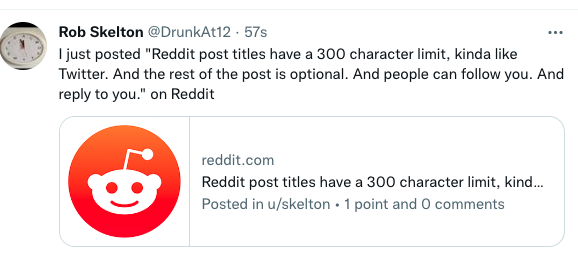Deep fakes and the like are a growing problem:
- Politicians saying something they didn’t
- Fake nudes of high school kids
- Fake music that is illegal but is shared without a source
Of course it will get worse, and new angles will emerge that are unheard of. Regulation could be the solution, although nobody will be a fan. If you want to have a platform where you are immune from having wrong content on it (as long as you police the content to a reasonable level), then you must also follow this one simple rule. All content has to have an origin, and that origin is posted with the content.
- Music comes from the artist’s home page
- Memes have an origin
- Photos come from the page of who took the photo
Any authorisations, all types of rights, are stored at the source.
So, if I want to share a meme I found online, I have to go to the source, and maybe agree to something, and maybe get a link back to the source with my auth ID in it… and so on. We are talking Creative Commons for everything.
To post something from a particular source, the platform must have registered it. So to post a picture of King Charles, it must come from a news source, or his own website, or a registered source that will take the fall if they have acquired it or used it wrongly or illegally.
There are some downsides to this approach, obviously!
Posting content in social media will take longer, sometimes. Sharing a link from a registered source won’t take any longer. Reposting something that already cites a source, won’t take longer. Banging out a funny meme using content that is not yours, will take longer, and can only improve things for everyone – it will be a good opportunity to be a bit more serious, especially for topics that warrant it, like politics and anti-woke.
It is anti-freedom of speech. Er, no, it isn’t, but it will be seen that way. People misunderstand what those freedoms actually entail. Never mind though, because attribution regulations will only apply to social networks of a certain large size. Your anarcho-mischief collective will fly under the radar, although they will need to have a prominent message stating that they are non-regulated.

